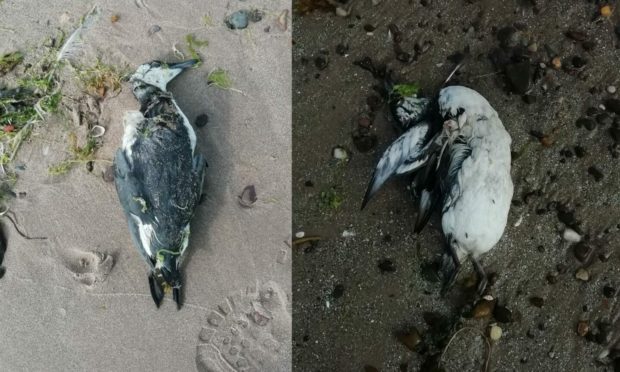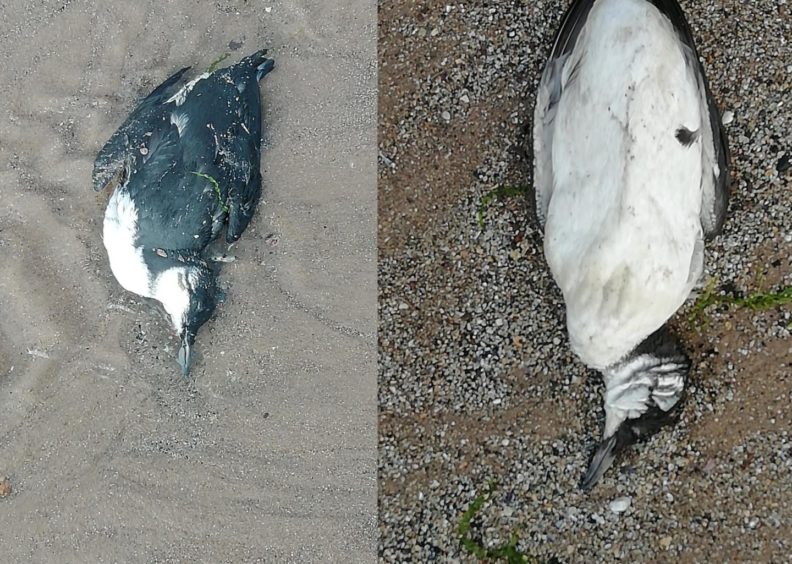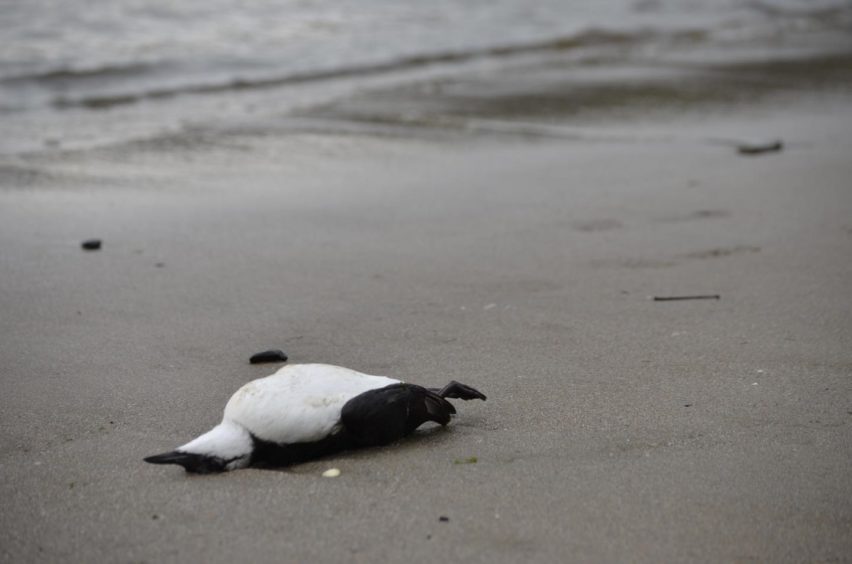A retired Fifer is worried the RSPB is not taking the spate of dead seabirds washed up on local beaches seriously enough.
Christine Walker has lived in West Weyms for about 20 years. She said she was “horrified” to find 23 dead birds on nearby Leven beach earlier this month.
The beach was “covered with feathers”, she added.
Christine called the RSPB to report her findings. But was left feeling rebuffed after learning the bird protection charity could not help her.
Her comments come as the RSPB publicly addressed the issue for the first time on Monday with a post on social media.
There is growing alarm over the dead birds appearing on beaches in Scotland and in the north east of England.
Christine said the RSPB were less than helpful when she called.
“The woman I spoke to, her attitude was appalling.
“At first she told me it was normal for dead birds to wash up on the beach, but I put her right about that considering how many I found.
“The she tells me ‘we can’t go collecting dead birds’, but that’s not what I was asking.
“If we can’t report these things properly, then how is anyone going to find out what is happening?”
Christine’s first thought was plastic waste might be causing the deaths.
“I abhor litter,” she added.
Where are dead guillemots washing up?
All over the eastern coastline according to expert Mark Newell, who works with the UK Centre for Ecology and Hydrology.
He is awaiting toxicology results from some birds in the hope it offers a better understanding of what is happening.
One hypothesis his team are working towards is that scarce food sources are bringing the seabirds closer to land during the fledgling season.
But that wouldn’t explain why people are predominately finding guillemots and not other seabirds, he concedes.
Mark did rule out a weather incident, as it has been “fairly benign” in recent weeks.
Other areas in Tayside and Fife which have reported dead guillemots include St Cyrus, Broughty Ferry and Aberdour.
In Aberdeenshire, Ellon-charity New Arc has been taking in dozens of the seabirds.
What should I do if I come across a guillemot?
The RSPB said on social media to contact animal rescue charity SSPCA if anyone comes across a struggling guillemot. If it is dead, they should contact Defra.
The RSPB also said on social media that climate change may be playing a part in the mystery deaths.
🚨 You may have heard the recent news of hundreds of seabirds that have been found dead along the coasts of north-east England and Scotland. pic.twitter.com/XGBwvovKG0
— RSPB (@Natures_Voice) September 20, 2021
The post states: “We do know that climate change is driving prey fish numbers down in our seas and creating more extreme weather events.
“Extreme weather, along with pollution and disease can kill seabirds and if prey fish are scarce, seabirds can be weakened through starvation.”
An RSPB spokeswoman said they could not comment on Christine’s experience because they have “many offices and reserves across the country, with phones often being monitored by several people”.



